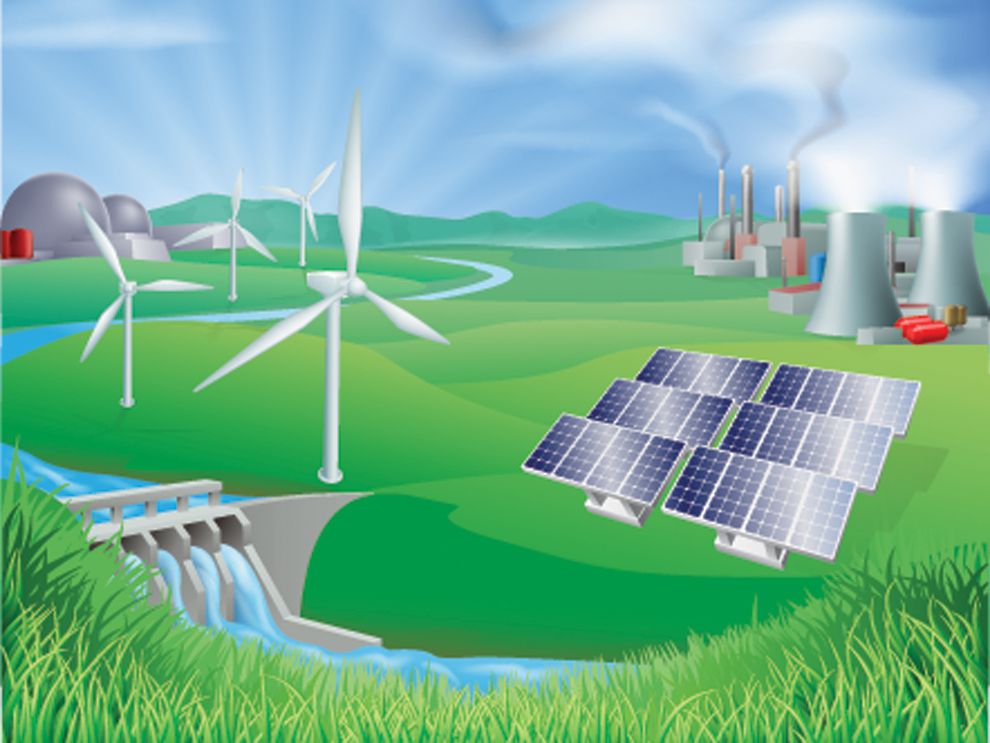Renewable and Nonrenewable Resources
Natural resources, either biotic (living things such as plants/animals) or abiotic (non living things such as water/sunlight) are highly beneficial to us. Providing us with food, medicine and energy sources for our machinery, these resources are included in the list of nature’s endless bounties. They are usually categorised into two types, namely renewable and non renewable resources.
Renewable Resources
A renewable resource is one that can be persistently restored and is easily accessible. For example, water is always being replenished with the help of a water cycle, trees regrow from seeds and animals are constantly reproducing. This characteristic of regeneration helps to maintain the balance of an ecosystem, as living beings rely greatly on these resources simply for survival.
Non-Renewable Resources
A non-renewable resource is one that is in limited quantity, often found deep under the Earth’s surface and was formed millions of years ago. Organic matter (such as dead plants and animals) undergo a natural process of decomposition and is later converted into useful products. These consist of materials such as coal, petroleum and natural gases, and are commonly known as fossil fuels, that we frequently burn for energy. This process takes a significant amount of time, usually to the extent of centuries and hence, we can understand that they are in sparse supply.
How Do We Take Care Of Them?
There is an expiration date to everything and that includes all natural resources. With renewable resources diminishing at a faster rate than they are being replaced and the burning/usage of non renewable resources contributing to the leading environmental issue of global warming, it is critical to make note of these warning signs. In addition to these resources already being difficult to deal with, the pollution that occurs after usage is also a notable problem. From its waste material being disposed of carelessly, to toxic gases released into the air, we are depleting the Earth of its resources whilst simultaneously disrupting it’s potential to restore them.
However, all hope is not lost! These natural resources can be still conserved and used wisely if we follow the simple, yet effective strategy of the three R’s:
The first R is to reduce; by reducing our dependence on fossil fuels, we are able to decrease our carbon dioxide emissions. Opting to walk instead of using a car or simply switching off the lights when unnecessary are ways we can reduce fossil fuel consumption.
The second R is to reuse; reusing everyday items as simple as glass jars, bags or plastic equipment, can help minimise the energy used by manufacturers to create these. Instead of replacing your items with new products, make sure to check if they can be repaired.
The final R is to recycle; this includes the processing of non-essential materials to create new products instead of discarding them. Glass, paper and metal items are some of the easiest to recycle and when done, reduces the need for raw materials and the energy required to produce them.
Looking forward, our future generations are at a risk of depleting resources and troubles with a harmful environment. Adhering to such a conservation strategy might just be our best shot to take responsibility as mankind and revive our home with its unique and sustainable character.
More About Winson Oil
Founded in 1970 by Wilson Rodrigues, Winson Oil has established itself as one of Asia’s major energy trading companies. We have offices based in various parts of the Asiatic continent including Hong Kong, the Philippines, and Bangalore.
Winson Oil is focused on guaranteeing customer satisfaction. With due diligence and strict compliance to the trading partner’s specifications, we focus on building relationships with partners and ensuring that their efforts and contributions are recognized.
With over 50 years of experience under our belt, we are always trying to understand the work of our partners better so that we can offer end-to-end supply chain solutions. These include onshore and offshore oil tanks, shipping service distribution, vessels, and essential logistics.
At Winson Oil, we believe in energy progress and are committed to driving energy efficiency while striving to sustain our planet addressing global challenges in our contributions to economic growth and job opportunities. Our proven ability in development has steadily made advances in driving an innovative work culture.
With a strong partner network, a fortified position in the market and a deep sense of customer needs, we are zealous in offering the best services and solutions to our clients. We are proud to continue to provide integral solutions to our clients and hope to spread our reach to other regions. In fact, we have plans to open offices in countries like Australia and New Zealand.
